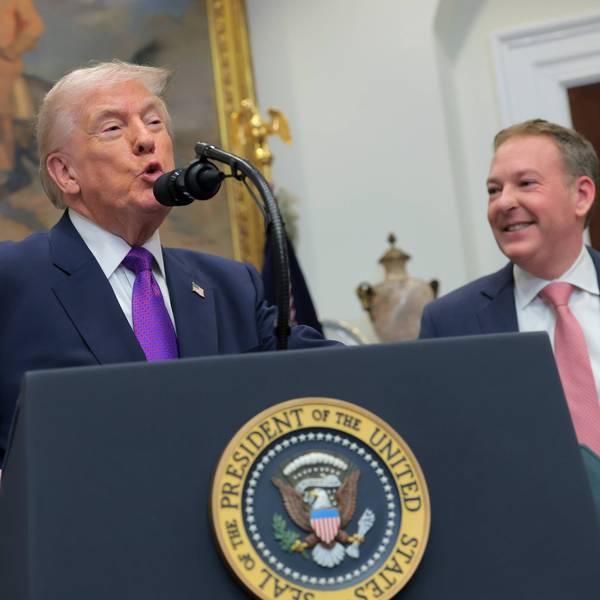Labor advocates celebrated on Tuesday following the Biden administration's announcement of a proposed rule to protect workers from extreme heat—the first national workplace heat safety standard.
The Occupational Safety and Health Administration (OSHA), an agency within the U.S. Department of Labor, published the rule, which the administration says would protect about 36 million indoor and outdoor employees from heat-related injuries and illnesses. It follows similar regulations that five states have approved in recent years.
Labor groups said the rule was the result of decades of advocacy by farmworkers and others subjected to extreme heat, who tend to be working-class people of color or immigrants. The movement was galvanized by heat-related deaths in workplaces around the country.
"This is a bittersweet moment for farmworkers," United Farm Workers president Teresa Romero said in a statement. "Every significant heat safety regulation at the state, and now federal, level was written in the blood of farmworkers."
"Today, the federal government put itself on the right side of history by seeking, for the first time, to establish the precedent that every worker in America has the right to shade, water, and rest while working in temperatures that could kill them," Romero added.
Juley Fulcher, a worker health and safety advocate at Public Citizen, an advocacy group that first called for a federal workplace heat protection standard in 2011, said in a statement that the OSHA rule was a "monumental victory for those who toil in the summer heat."
The focus on protection from heat comes as millions of Americans are under heat advisories this week and fossil-fuel driven climate change causes record-setting temperatures month after month.
The OSHA regulation, which will be the subject of written comments and a public hearing before being finalized, requires worker access to clean drinking water, indoor or shaded areas, rest breaks, and heat-related training. The regulation contains tiers so that certain protections kick in at a heat index of 80°F and still more at 90°F. The rule mandates an acclimatization process for new employees, as they are especially at risk in high temperatures.
The rule would also substantially increase the penalties that employers might pay in the case of heat-related employee injuries, according to The Guardian.
Bill McGuire, a climate scientist at University College London, wrote on social media that the new rule was "absolutely vital" but warned that "working outside will not be possible at all in the extreme summer temperatures that coming years will bring."
The federal rule comes amid a push by labor and environmental groups to establish more workplace protections against extreme heat. Rep. Greg Casar (D-Texas) helped organize a "thirst strike" with unions and civil society groups on the U.S. Capitol steps last July. Responding to bottom-up pressure, California, Colorado, Oregon, Minnesota, and Washington have passed workplace heat safety standards in recent years.
Industry groups have lobbied against the rules, with remarkable success in states such as Florida and Texas, both of which have gone as far as passing laws that prohibit local authorities from mandating heat protections for outdoor workers. The Texas law was ruled unconstitutional by a state district court judge last year.
The new federal rule comes as a part of a larger administration effort to address the extreme heat that Americans are increasingly facing. An OSHA program that began in 2022 has conducted more than 5,000 heat-related inspections in workplaces with the most heat exposure, according to a Labor Department statement.
Separately on Tuesday, the Department of Homeland Security and the Federal Emergency Management Agency (FEMA) announced a set of 656 projects aimed at preparing for extreme heat and other weather disasters, at a total cost of nearly $1 billion.
Jean Su, energy justice director at the Center for Biological Diversity, said in an emailed statement that the project funding "only scratches the surface of the nation's enormous need for tools to combat extreme heat" and pushed for FEMA to classify extreme heat and wildlife smoke events as "major disasters," which would unlock much more key funding.
Su did praise OSHA's "landmark rule" and called for an "urgent, government-wide game plan to tackle catastrophic extreme heat."




